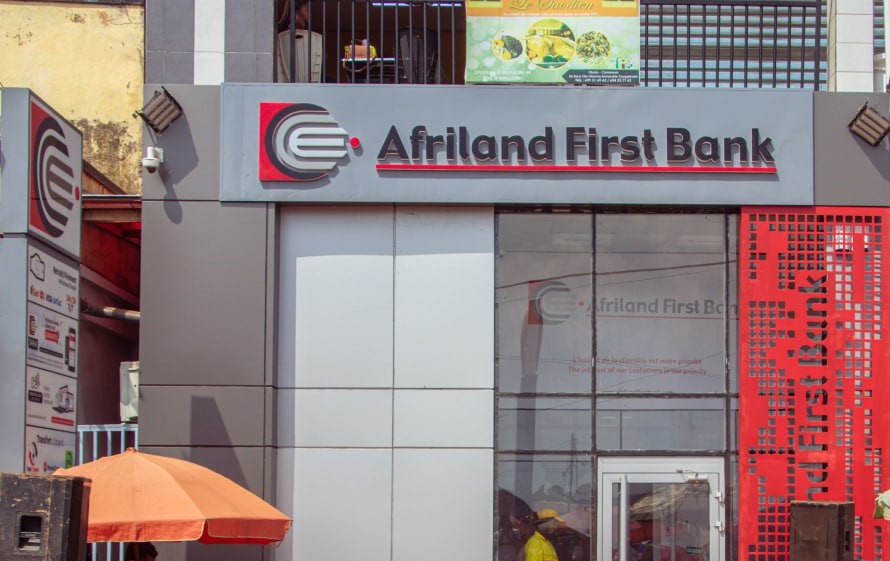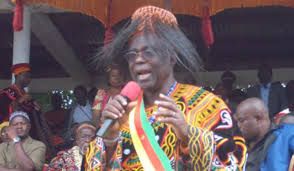Cameroon’s Banking Sector: PART 3 – Cameroon Counts Eight Commercial Banks Created With Local Capital, Some Of Which Ran Into Crisis That Forced COBAC To Intervene

However some of the banks have been recording success stories.
With the coming of Africa Golden Bank, Cameroon today counts a total of eight commercial banks created with local capital, including one created by the State. They include: 1) Afriland First Bank. 2) Union Bank of Cameroon, UBC. 3) Commercial Bank Cameroun, CBC. 4) Credit Communautaire d’Afrique Bank, CCA Bank. 5) National Financial Credit Bank, NFC Bank. 6) La Regionale Bank. 7) Banque Camerounaise des Petites et Moyennes Enterprises (BC – PME). 8) Africa Golden Bank.
Not all the eight financial institutions were from onset created as commercial banks. La CCA Bank and La Regionale Bank with head office in Douala and Yaounde respectively, were initially micro financial institutions commonly known in Anglophone Cameroon as credit Unions. They each made significant progress to become a commercial bank. CCA Bank was the first to become a commercial bank, while La Regional followed barely two years ago, that is in 2022. The management and shareholders of CCA Bank and La Regionale Bank thus really deserve praises for the great evolution or huge progress that the two financial institutions made, starting as micro finance institutions and making significant growth to become commercial bank.
The Bank That Was Supposed To Salvage SMEs
As for Banque Camerounaise des Petites et Moyennes Entreprises, BC – PME, which is supposed to be the bank for Small and Medium Size Enterprises, SMEs, it is a State owned bank that exist more on paper. The bank was created by the State of Cameroon supposedly in response to the repeated calls or pleas by the Cameroonian business class operating Small and Medium Size Enterprises. The calls were that the State should look for partners to create a bank that can easily grant loans to SMEs, which generally find it difficult to obtain loans from commercial banks in the country. But since BC – PME was created by the State of Cameroon, its impact, has never been really felt by SMEs across the country. Recent studies show that only 11.5 % of Small and Medium Size Enterprises, SMEs, In Cameroon, have access to bank credits.
However the fact of the matter is that before creating the bank (BC – PME), the Cameroon Government repeatedly invited the business cartel, GICAM, to come onboard the project as a major shareholder. But GICAM, now GECAM, has never accepted the Government’s invitation to come onboard as a major shareholder. This situation has left BC – PME with very little capital, which makes it difficult to grow.
Afriland First Bank Making Great Strides / Some Local Banks Have Faced Crisis – Situations
As was stated in an earlier article by THE MENTOR, one of the local banks in Cameroon, Afriland First Bank of Paul Fokam Kammogne, has in the last few years distinguished itself as the first among all the 19 commercial banks in Cameroon, as regard the occupation of the market space in the Banking sector in the country.
But while African First Bank has been making great strides, a number of local banks have on the contrary along the line faced crisis- situations that required the intervention of the Central Africa Banking Commission, COBAC, which is the official regulator of the banking sector in all member countries of the Central African Economic and Monetary Community, CEMAC zone. COBAC intervened and worked with the collaboration of the Cameroon Government at some points, to restructure the banks.
The Case Of Union Bank Of Cameroon
That was what for example happened with the Union Bank of Cameroon, UBC. The bank was created by the principal shareholder, the Cameroon Credit Union League, CAMCUL, which is the umbrella organization of the so many micro financial institutions of the two Anglophone Regions in the country. They are regions where the culture of cooperative credit unions remains strong.
Meanwhile, it unfortunately turned out, that though Union Bank of Cameroon was created by CAMCUL, it still ran into the same problem that some of the banks created by Cameroonians suffer in the country. That is, the problem of the managements of banks giving out huge loans to so called businessmen and women, including contractors, under questionable conditions that end up with the loans not being repaid. Suffice to say the non -repayment of loans by many business persons or customers, ended up plunging Union Bank into liquidity problem.
The situation of UBC finally led to the intervention of COBAC, which as it normally happens placed the bank under restructuring and appointed a Provisional Administrator. The restructuring of Union Bank followed the right process, and also ended in the right way, with the coming in of a new majority shareholder of the bank. The new majority shareholder of Union Bank of Cameroon was Oceanic Bank of neighbouring Nigeria, which appointed the new General Manager of UBC. To be more precise, the new General Manager of Union Bank came from Oceanic Bank Nigeria.
Government’s Double Standards
 It should be noted that Union Bank of Cameroon was fortunate, probably because it was created by a powerful organization, CAMCUL. As will be seen in separate articles later, when COBAC also stepped in and restructured Amity Bank Cameroon and Commercial Bank Cameroun, the stories ended differently as compared to that of Union Bank Cameroon. With the case of Amity Bank, the Government ended up ILLEGALLY handing over the bank to a Togolese bank known as Banque Atlantique, and under unclear conditions. Amity Bank Cameroon has since become Banque Atlantique Cameroun.
It should be noted that Union Bank of Cameroon was fortunate, probably because it was created by a powerful organization, CAMCUL. As will be seen in separate articles later, when COBAC also stepped in and restructured Amity Bank Cameroon and Commercial Bank Cameroun, the stories ended differently as compared to that of Union Bank Cameroon. With the case of Amity Bank, the Government ended up ILLEGALLY handing over the bank to a Togolese bank known as Banque Atlantique, and under unclear conditions. Amity Bank Cameroon has since become Banque Atlantique Cameroun.
As for CBC, the Government after COBAC’s restructuring, kicked out the Fotso Group that created CBC, pumped in money (State funds), and took over the bank as the new majority shareholder (87 %).
The Case Of National Financial Credit Bank
The Principal Promoter and Majority Shareholder of the National Financial Credit Bank, NFC Bank, was Senator Akwanga Zacharie, who ran an insurance company, and hailed from Mono Division in the Northwest Region. He passed away a few years ago. But before he died, there were indications that all was not well with NFC Bank, and there were even doubts as to whether he or his insurance company was still the majority shareholder of NFC Bank, or whether he was still the Board Chair of NFC Bank.
Suffice to say that the Government stepped to redress the situation in NFC Bank. The Government fired many senior officials of NFC Bank, but interestingly enough, if not curiously enough, the General Manager of the bank, Julius Berdu Manjo, maintained his post. Whatever the case, NFC is said to be gradually getting out of trouble waters.




